Drilling starts for 'hot rocks' power in Cornwall
- Published
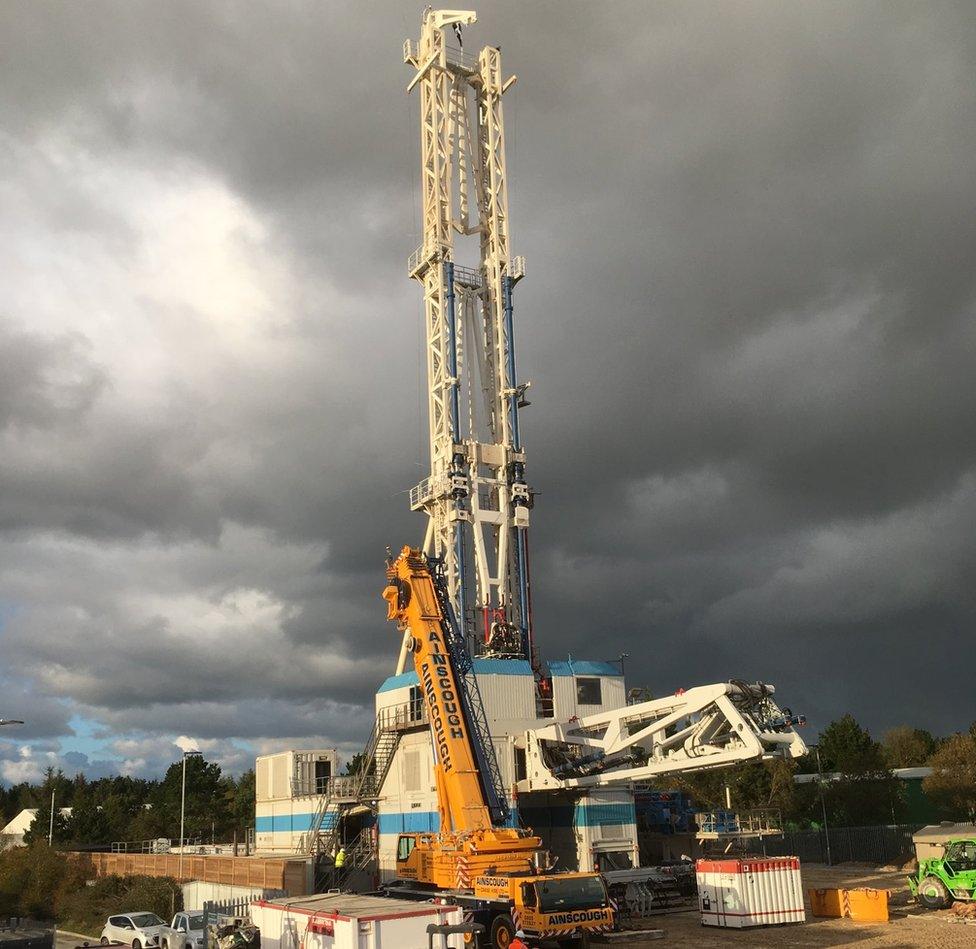
It is thought that the 2.8 mile hole will be the deepest yet drilled in the UK
Drilling work is beginning at what may become the first deep geothermal power plant in the UK.
Two wells will be drilled 2.8 miles (4.5km) and 1.5 miles (2.5km) into granite near Redruth, Cornwall, where the temperature is up to 200C (390F).
Cold water will be pumped down to the hot rocks and then brought as heated water to the surface.
Steam from the heated water will drive turbines producing electricity, perhaps enough for 3,000 homes.
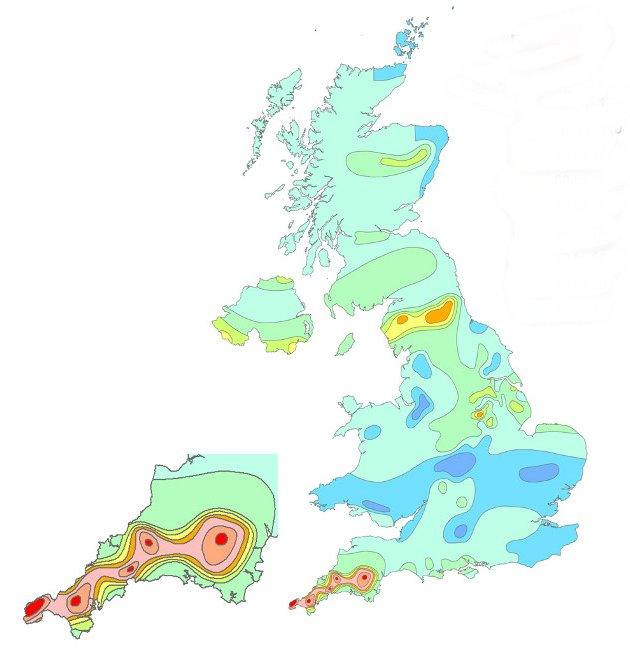
Cornwall's heat-producing granite rocks make it a good place to try and exploit geothermal energy say engineers
It is thought that the 2.8-mile deep hole, which will take seven months to finish, will be the deepest ever drilled in the UK.
The heat-producing properties of the granite rocks under Cornwall mean the county is an obvious choice to exploit geothermal energy, say engineers behind the project.
Energy firm Geothermal Engineering says the key issues will be whether the rocks are permeable enough to get the water through and enough heated water can be extracted to drive the turbines.
The Eden Project near St Austell and the Jubilee Pool lido in Penzance are also currently undertaking similar projects.

How does hot rocks energy production work?
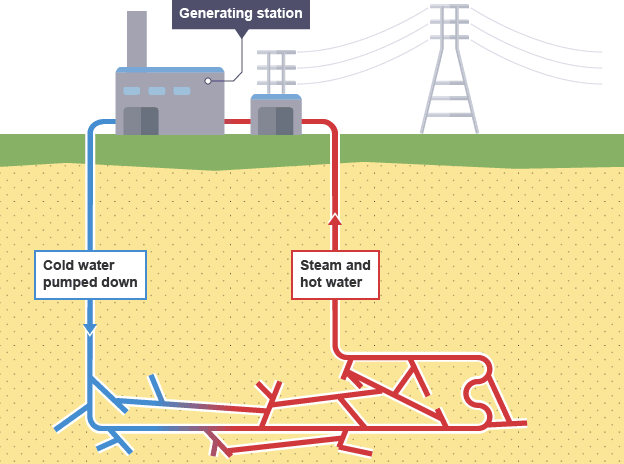
Deep wells are drilled down to the hot rocks and cold water pumped down
The water runs through cracks in the rocks and is heated up
It returns to the surface as hot water and steam to drive turbines
Source: BBC Bitesize

The £18m project has received £10.6m from the European Regional Development Fund, £2.4m from Cornwall Council and £5m from private investors.
Geothermal Engineering claims geothermal power could deliver "up to 20%" of the UK's electricity and heat energy needs "in a reliable and sustainable way".
Managing director Dr Ryan Law said: "It is incredibly exciting to see this pioneering project getting off the ground in what we hope will be the start of many similar initiatives across the UK."
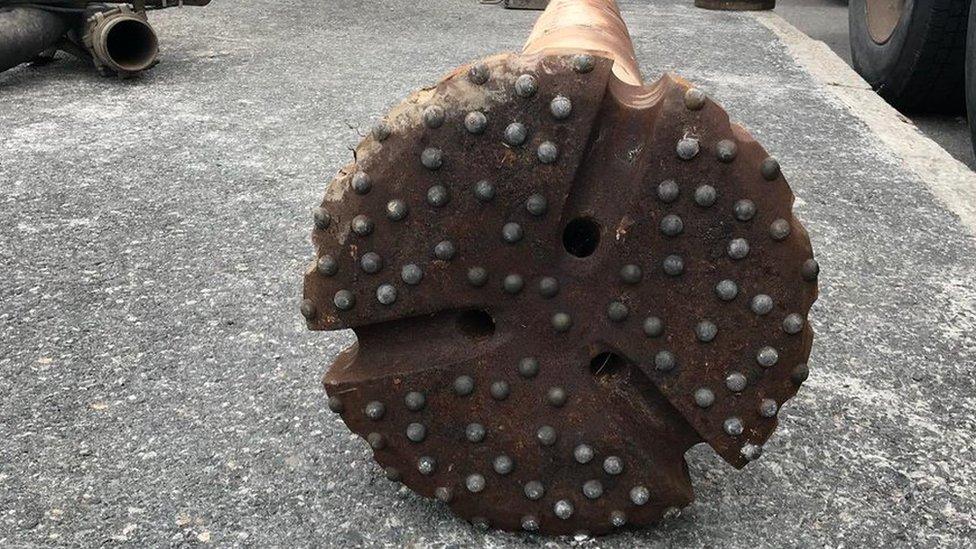
A drill bit at the Jubilee Pool in Penzance where a geothermal project is also being tested
- Published15 March 2018

- Published31 October 2011
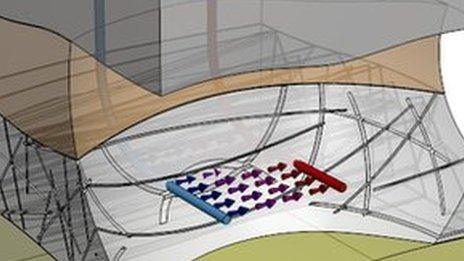
- Published18 December 2010
- Published16 August 2010